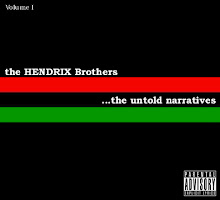"Without failure, we don't know what success is." To some extent, I agree with this statement by Michael Goodwin. One way to learn is through your own experience, whether it's your own successes or failures. However, two things are associated with your learning experience and can affect it substantially – 1) your environment and 2) the consequence(s) of failures.
Some environments are structured in failure. Intentional or unintentional, urban environments like Detroit, MI have an educational system that's not the greatest (for whatever reasons that aren't important for this essay). In this type of industrial city where you can gain an excellent middle-income lifestyle without education, the urge to "fix" this broken system may not have the most support. This creates a cycle of failure – failure to see the importance of education and knowledge. However, in America, we associate success with money, and if you can gain status without education, then many citizens have accomplished the "American Dream."
Children raised in this environment may fail and be surrounded by constant failure. The question becomes, do you want them to grow up in this environment and possibly follow, for example, a cyclic example related to lack of education? Listening to Michael Goodwin's talk on social promotion, the answer would be yes. However, I would ask the question, what if we take these children, graduate them, and put them into an environment of constant success? This "social promotion" would give them new insight and more examples of success. This is another way to learn – grow from the best and follow the successes of others. I feel this is an extremely important aspect of successful leadership and in many ways, can be the only way to survive and reach achievement. Therefore, I would not say you need to fail in order to know success.
I also think the consequences of failures are known to many and defined in America as drastic occurrences. Because of these perceived "penalties," there is a drive to not fail. I don't think this is negative. If you honestly know the effects of failure on your life and family, or you know that failure is detrimental, why would you want to experience it? That's not to say that experiencing it will not be substantial in growth, but I don’t need to experience the failure of not graduating from school or losing my job to know that they can both have a negative effect on my life. Knowing this, I will strive and do my best to prevent either occurrence.
I empathize with Michael Goodwin. We can create a culture where we have this "entitlement mania." People feel they can be bailed out of situations at anytime and it can feed laziness. However, many people "fear" failure or grow up in a structure of constant failure, and fight to never experience it. If you can become successful knowing what not to do through a thriving, nurturing environment, and never fail, please move forward and achieve!
Michael Hendrix
mhendri5@yahoo.com
Cornell University – Johnson School of Management
Class of 2013
Thursday, March 31, 2011
Subscribe to:
Comments (Atom)
